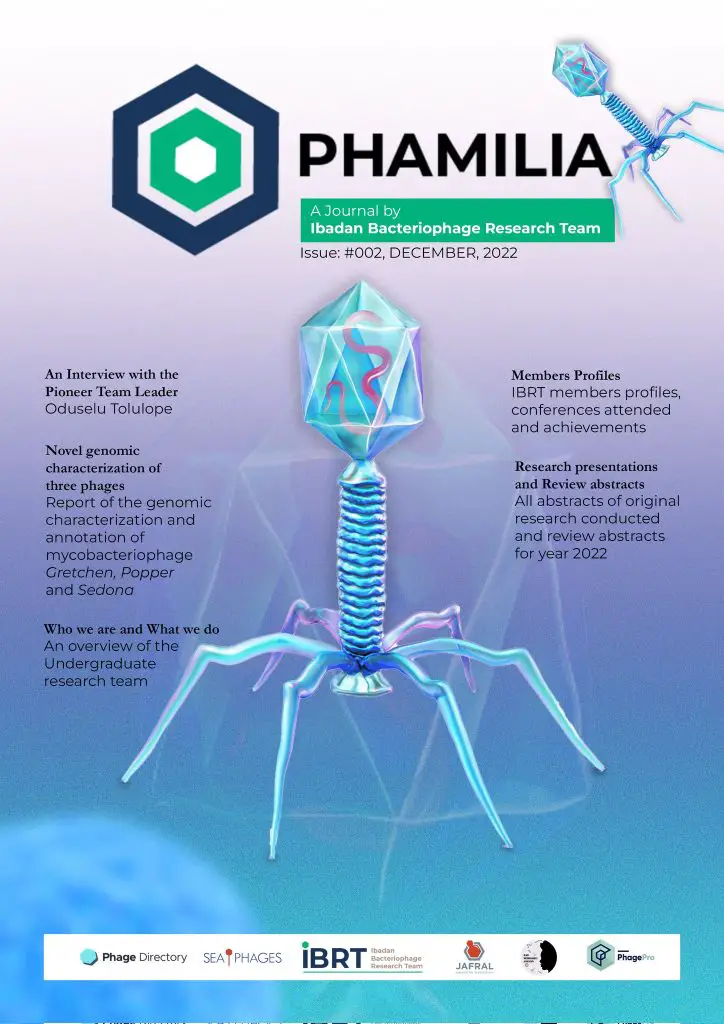The Phage blog proudly presents an exclusive interview with the Ibadan Bacteriophage Research Team (IBRT), an undergraduate research organization at Nigeria's prestigious University of Ibadan. This team of young and passionate researchers has emerged as a beacon of hope for the African continent, showcasing the potential of emerging technologies and leading the way in bacteriophage biology and antimicrobial resistance research. As part of our commitment to highlight phage research teams across Africa and celebrate their accomplishments, we delve into the remarkable journey of IBRT and the impact they have made.
The Journey Begins: Founding of IBRT
In 2018, the IBRT was born as a result of the University of Ibadan's registration for the Science Education Alliance Phage Hunters Advancing Genomics and Evolutionary Sciences (SEA-PHAGES) project, in collaboration with the Howard Hughes Medical Institute and the University of Pittsburgh. The team comprised enthusiastic Biomedical Laboratory Science students who devoted extra time to research under the SEA-PHAGES project. They receive very close supervision by the university faculty team headed by Prof. O.G Ademowo. Their journey began with basic bioinformatics and bacteriophage biology classes, and they successfully characterized a novel bacteriophage named IDAHO. This collaboration laid the foundation for IBRT's voluntary undergraduate research training project in bacteriophage biology and computational genomics.
IBRT's Triumphs: Setting Records in Africa
IBRT has set an inspiring precedent in African bacteriophage research, notably becoming the first African phage team with its journal dedicated to publishing their work. The team's achievements include the annotation of eight phage genome sequences in the NCBI repository and their membership in international research consortia, such as the Surveillance and Epidemiology of DRUG Resistant Infection Consortium (SEDRIC).
In addition, IBRT has proven its dedication to knowledge dissemination through initiatives like the World Phage Week Webinar Series and the release of its own journal, "PHAMILIA." This journal serves to familiarize readers with the remarkable bacteriophage research work undertaken by IBRT's undergraduate students, a true testament to the team's impact on the scientific community.

IBRT hosts the annual World Phage Week Webinar Series and has successfully hosted two editions with registered participants of more than 200. The team has also released two editions of its own journal themed “PHAMILIA” with the intention to get readers of the journal familiar with the bacteriophage research work ongoing in the team. The PHAMILIA journal becomes the first bacteriophage research-focused scientific publication of undergraduate students of any African institution.
IBRT team
Empowering African Researchers: Training the Next Generation
IBRT's commitment to training the next generation of researchers is evident in the more than 40 students who have undergone specialized training in bacteriophage research. These students have showcased their expertise by presenting research papers at reputable conferences, demonstrating the impact of IBRT's mentorship and support structure. One standout success story is Mr. Tolulope Oduselu, the team's pioneer leader, who received accolades and awards for his research contributions.
Phage Therapy in Africa: Challenges and Opportunities
While phage therapy is gaining global attention as a promising alternative to antibiotics, it is still in its infancy in Africa. IBRT's efforts in raising awareness about phage technology in Africa hold the potential to revolutionize the healthcare system on the continent. Despite that, just like any other phage research group in Africa IBRT is facing challenges
Challenges:
- Regulatory Frameworks: The absence of well-established legal and regulatory frameworks specific to phage therapy hinders its widespread adoption in Africa. Clear guidelines and standardized protocols are essential to ensure safe and effective implementation.
- Limited Awareness: Phage therapy remains relatively unfamiliar to healthcare practitioners and the general public in many African countries. A lack of awareness poses challenges in terms of acceptance and understanding.
- Financial Support: The development and production of phage-based treatments require substantial financial investment. Limited funding options for research and development may impede progress in harnessing the full potential of phage therapy.
- Isolation of Local Phages: Identifying and isolating locally relevant bacteriophages for targeted treatments is crucial for success. However, the process of isolating and characterizing new phages can be labor-intensive and resource-demanding.
- Antibiotic Dependency: Widespread antibiotic use has led to a prevailing reliance on traditional antibiotics, making it challenging to shift to newer treatment approaches like phage therapy.
- Infrastructure and Technology: Access to state-of-the-art facilities and advanced technologies is essential for successful phage research and therapy implementation. Developing countries may face limitations in infrastructure and technology, impacting progress.
- Public Perception and Cultural Factors: Changing attitudes and beliefs regarding medical treatments can influence the acceptance of phage therapy. Addressing cultural factors that might affect its adoption is crucial.
Opportunities:
- Tailored Treatments: Phage therapy's specificity allows for personalized treatments targeting specific bacterial infections, potentially improving patient outcomes and reducing antimicrobial resistance.
- Combatting Antibiotic Resistance: As antibiotic resistance continues to rise, phage therapy presents a viable solution to combat multidrug-resistant infections and preserve existing antibiotics.
- Natural Alternatives: Phages occur naturally and are found in various environments. Harnessing this natural resource offers a sustainable alternative to chemical interventions.
- Local Research Collaboration: African countries can leverage intra-continental research collaborations to pool resources, expertise, and knowledge, fostering phage research and technology adoption.
- Partnerships with Global Initiatives: Collaboration with international organizations and researchers can provide valuable support and resources to accelerate the development and implementation of phage therapy.
- Capacity Building and Training: Investing in training programs and capacity-building initiatives can equip African researchers and healthcare professionals with the skills and knowledge required for phage research and therapy.
- Awareness Campaigns: Raising awareness about the benefits and safety of phage therapy through targeted public education campaigns can enhance its acceptance in African communities.
- Integration with Healthcare Systems: Integrating phage therapy within existing healthcare systems can pave the way for its inclusion in mainstream medical practices.
- Clinical Trials: Conducting well-designed clinical trials in Africa can generate robust evidence on the efficacy and safety of phage therapy, promoting its acceptance and adoption.
- Policy Advocacy: Advocating for supportive policies and initiatives at the national and regional levels can facilitate the integration of phage therapy into healthcare systems.
Collaboration for Advancement: The Future of Phage Technology in Africa
IBRT envisions a future where phage technology is fully embraced in Africa's healthcare system as a successful alternative antimicrobial therapy. Collaborations among African countries would stimulate phage awareness and resource mobilization for research projects, ultimately reducing the knowledge gap in Africa.
Overcoming Adversity: IBRT's Resilience
IBRT's journey has not been without challenges, including funding and isolation of local phages. However, the team's ability to harness the opportunities provided by SEA-PHAGES and adapt them to local contexts has been a standout achievement. This spirit of resilience and innovation sets IBRT apart from other undergraduate research teams, making them a trailblazer in bacteriophage research in Africa.
On funding, we’ve always relied on support from established organizations that have an interest in phage research. Through their generous support, we usually try to make judicious use of the resources given to us. In Nigeria, there is little institutional or governmental support for research therefore we have to make do with what we get from the Phage Community and other well-meaning organizations.
IBRT Team
The Ibadan Bacteriophage Research Team exemplifies the untapped potential of African researchers in emerging technologies. Their journey from a small group of enthusiasts to a thriving research organization showcases the impact of passionate mentorship, dedication, and collaboration. As IBRT sets records as the only African phage team with its journal and holds open discussions through Twitter Spaces, they inspire a new generation of researchers to believe in the possibilities of their contributions.
The Phage blog proudly acknowledges the invaluable contributions of the Ibadan Bacteriophage Research Team, whose remarkable insights and achievements have enriched this article. As part of a new series of posts dedicated to highlighting phage research teams across Africa, we had the privilege of conducting an interview with the IBRT. We extend our deepest gratitude to Adediran Benjamin Adesumbo, Owoeye Williams, and Okunade Peace for generously sharing their time and expertise, allowing us to gain deeper insights into the pioneering work of the IBRT. Their valuable input has been instrumental in showcasing the team's accomplishments and their inspiring journey in bacteriophage research. As The Phage blog remains committed to shedding light on the groundbreaking efforts of research teams, our readers can expect more engaging content that celebrates the potential of phage research across the African continent.






Wow
Kudos to the IBRT
Is the Phamilia journal limited to only Ibadan students?